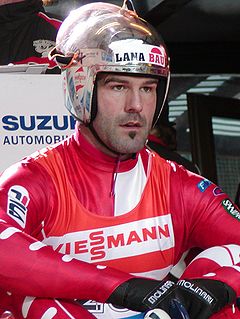A Quote by Marcie Cohen Ferris
If you live in the South, you are often a very short distance from a garden, or even a farm owned by your family or by your neighbor's family. When I was a child, even though I grew up in an era of highly processed food, the grocery store sold local field peas, lima beans, tomatoes, and sweet potatoes. While there is a deep sense of place in the South - and the foods of this place - I don't want to present a pastoral vision of the contemporary South. The majority of Southerners cannot access fresh, local, affordable food.
Quote Topics
Access
Affordable
Beans
Cannot
Child
Contemporary
Deep
Distance
Era
Even
Family
Farm
Field
Food
Foods
Fresh
Garden
Grew
Grew Up
Grocery
Grocery Store
Highly
Live
Local
Majority
Neighbor
Often
Our Family
Owned
Peas
Place
Potatoes
Present
Processed
Processed Food
Sense
Sense Of Place
Short
Sold
South
Store
Sweet
Sweet Potatoes
Though
Tomatoes
Up
Very
Vision
Want
While
Your
Related Quotes
Terroir - the taste of place - was important from the early South of the first Indian, African, and Europeans to the nineteenth-century South. During that time, Southerners ate far more locally and seasonally, from the ground they knew and grew up on. That idea connects back to today. You are a place. And as a Southerner, the food you place in your body speaks of your personal history, and of the broader Southern history.
When I'm asked to define "Southern food," I usually turn that question back to my audience and ask them what they think. I hear responses like fried chicken, catfish, barbecue, collard greens, and sweet potatoes. These are excellent examples, because they are historically grounded. You can trace each dish back to the people who brought these food traditions to the South. Today, these foods are central to the core culinary grammar of the American South.
SNAP benefits help local economies because the benefits are spent at local grocery stores - with locally grown and locally-made products. I remember many years ago, while on food stamps, I advocated for the benefits to be spent at local farmers markets - a move that has helped local economies even more.
In studying food, you embrace everything. Food exposes the long, complex history of the South - slavery, Jim Crow segregation, class struggle, extreme hunger, sexism, and disenfranchisement. These issues are revealed through food encounters, and they contrast this with the pleasure and the inventiveness of Southern cuisine. Food is always at the heart of daily life in the South.
It is better to buy from a small, privately owned local store than from a chain store. It is better to buy a good product than a bad one. Do not buy anything you don't need. Do as much as you can for yourself. If you cannot do something for yourself, see if you have a neighbor who can do it for you. Do everything you can to see that your money stays as long as possible in the local community.




























